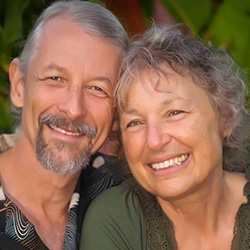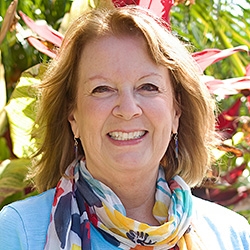

Search Results: learning
-
- Learn tips and strategies to ensure ALL voices are heard
- Grow your capacity to name and address power dynamics
- See how prior assumptions and perspectives impact how groups work together
- Explore facilitation components using a caring for all, power-with lens
-
Welcome to June. It’s the beginning of summer in my area of the world and I usually find myself moving at a slower pace; spending more time outdoors and with friends, more time reading and gardening. I really enjoy the beginning of summer especially because the sun brings just enough heat to feel good, but not so hot to be uncomfortable.
-
Come. Let us journey together into our own authentic Life force: the essential living energy that permeates all of our lives.
Your journey will begin at the center: with the divine / life force, or soul force.
Robert Gonzales shares how this fundamental life energy is the tender expression of your inner being, or soul. It unfolds through the heart as your deepest longings, which manifest themselves in all forms of human needs and values. When you live from the energies of compassion, creativity, love, and clarity – while remaining wholly grounded and aware of needs and values – then you are living your passion… You are living the Self-In-Life.
-
Roxy Manning's 2023, 4 session course, will help you
- Explore several essential components of facilitation using a caring for all, power-with lens
- Know how to identify and gather together the people who need to be in the room
- Learn tips and strategies for ensuring all voices are heard
- Grow your capacity to name and address power dynamics and unconscious bias that impacts group members’ experience
-
In this 6-session course Sarah Peyton will take you through the 5 levels of unconscious contracts that can create patterns of self-sabotage and self-defeat. Each session introduces a different unconscious contract based on various aspects of relational neuroscience and provides support for the release of these contracts.
Sarah Peyton shows you how, with deep empathy, self-accompaniment, and an understanding of neuroscience, you can free yourself from your original constraints.
It can be bewildering to be human.
We can make so many choices that are not good for us. Why do we persist in habits, incapacities or self-judgments that are harmful to our long-term well-being?
The answer to this question is surprising – it is usually either love – or - paradoxically, survival!
Love is at the root of self-sabotage.
Though we often aren't aware of it, our nervous systems are essentially still paired with our earliest caregivers and often related to how we responded as a child. Our first interactions shape us in ways that can limit our life energy.
-
Join Dian Killian and discover the power of imagery and metaphor in deepening your empathy practice. This segment from her 6 session course explores how visualizing sensations, emotions, and needs through metaphorical language can enhance the connection during empathy guessing, particularly in somatic-based approaches.
-
We typically think of certain words as feelings when they can be judgements (eg. “abandoned”). Hidden within evaluative/judgement words are true feelings and needs (eg. if we think we’re abandoned we may feel lonely or hurt, and want togetherness or belonging). With this handout discover more hidden feelings and needs within the judgements that sound like feelings. Then download the card deck to further practice and learn.
-
How can Nonviolent Communication (NVC) create more constructive conversations in the workplace? This video explores the key difference between calling someone in and calling them out, emphasizing the power of care over annoyance.
-
How do our nervous systems sync during connection, and what happens when disconnection occurs? In this Sarah Peyton video, we explore the profound interdependence of human relationships through the lens of Nonviolent Communication (NVC).
-
In times of conflict, it’s easy to lose touch with ourselves and our needs. In this heartfelt session, Jesse Wiens Chu shares three practical centering practices—rooted in the principles of Nonviolent Communication (NVC)—to help you find your way back to self-connection, empathy, and choice.
-
What do we do when someone speaks to us in a way that doesn’t feel respectful? In this video, Oren Jay Sofer explores how NVC invites us to listen for the feelings and needs behind harsh or judgmental words — not because we “should,” but because it gives us more choice and freedom in how we respond.
-
John Kinyon teaches mindfulness and how to translate thoughts into clear observations.
-
Jim Manske demonstrates using NVC and self-connection to create sincere, healing apologies.
-
CNVC Certified Trainer Arnina Kashtan talks about what she calls "witnessing humanity," touching on the gift of presence, empathy vs. identification and staying present in the face of intensity.
-
Experience NVC consciousness through exercises as if attending a live workshop with Mary.
-
Learn the Zero Step to focus on connection and affirm living in the present.
-
What do you experience when you give up on needs that are important to you, and are coerced into doing something you didn’t want to do? And why is it hard to make requests? Listen in and learn more.
-
As a beginner in NVC, you might find your attempts to practice your NVC only increases conflict, disconnection and upset in your interactions with people. Or perhaps people start seeing you as inauthentic. From there, you may find yourself sinking deeper into self-judgement. In this article, Jim Manske shows us how to shift these potential unintended outcomes, into deeper NVC consciousness that brings in more warmth, presence and open-hearted connection.
-
In lasers, light bounces between the mirrors, with each pass the light grows more intense. Our minds work similarly. Because of the "mirror" effect, where we can react to our reactions to our reactions to our reactions (and so on), changing our thought pattern even modestly at every level of reaction, can dramatically affect our ultimate experience. Usually the greatest amplifiers are the ones we notice the least. Learn what to notice -- to amplify more love rather than pain.
-
Empathy guessing when I was new to NVC seemed magical and mysterious. How could that other person have known that about me? And seen inside me — often in ways I'd missed myself. While empathy is both intuitive and an art, there is also a science to it. In this brief yet fascinating introduction to Dian's course, Empathy Hacking, you'll learn a super-practical way to demystify empathy guessing by making use of the root meaning of words.

Quick Links
Subscription Preferences
Stay In Touch!
Looking for ways to keep up with NVC Academy news, get special offers, free resources, or words of inspiration? Here are five ways to stay engaged:



















